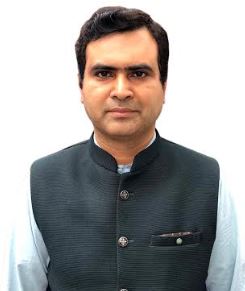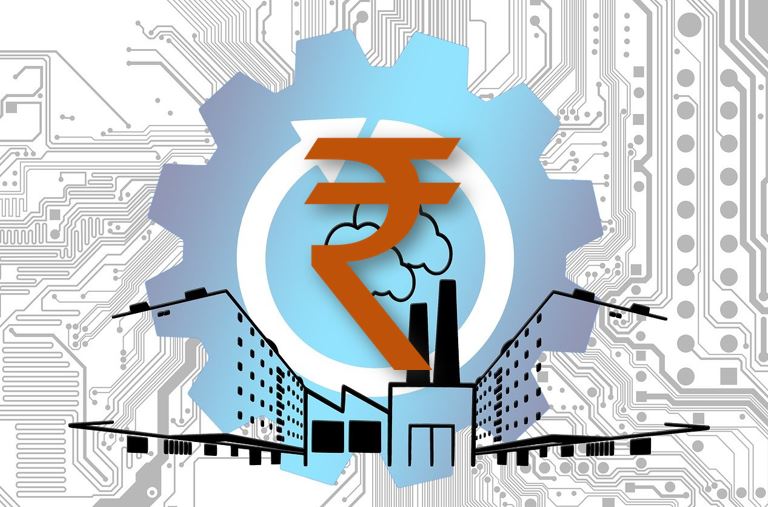The year 2020 was one of the dormant years of our lives, but full of chaos. Lots of people around the world and even in India have lost their livelihood. Shutting down of Industries, the exodus of laborers and other factors have put our economic system in a wheelchair that can be seen from the current GDP of India, however, at one side where GDP is struggling to acquire the pace, the Stock market is rallying up, bulls unprecedentedly taking over it.
One of the reasons is the Coup d’etat in the USA, yes of course in a democratic way which has increased the flow of foreign investment in the stock market. However, this is not going to revive the economy completely, thus lots of expectations of the industries, IT, agriculture, government, PSU, and other sectors including a common man’s are eying on the Budget of 2021 which will be presented by Finance Minister Nirmala Sitharaman on February 1, 2021. However, before that let’s see what different industry veterans think and hoping from Budget 2021.
Mr. Sheshgiri Kamath, Co-founder & CEO Kapture CRM

Startups have long been wishing for the relaxation of the FEMA laws. The ease of inbound/outbound financial transactions internationally has been a much-debated subject due to the number of startups that are raising capital from foreign funds. Currently, there are talks around simplifying the compliance procedure with reduced paperwork – especially the ones about filings. Startups will definitely benefit immensely if filings, returns, and submissions are made online.
The technology sector has faced tailwinds in recent times, especially during the pandemic. Making the process of raising capital a little easier by simplifying foreign outward and inward transactions will go a long way. Additionally, making changes to capital gains tax and the tax structure on ESOPs is going to help the sector tremendously as well
‘Make in India’ is another initiative where technology companies have been leading from the front, especially considering the size of the Indian software exports. And as reportedly, the government is planning to make this the best budget in the past century, I believe that the tech space is eagerly awaiting big changes.
Mr. Gaurav Shinh, Founder & CEO DAAS Labs.

The government has started realizing the importance of new technologies like Artificial Intelligence and Machine Learning and has even called Data the new oil in the previous Budget 2020. According to a recent NASSCOM report, Deep-tech and new start-up hubs will continue to grow at 40-45% CAGR. It also stated that investments are expected to return to 2019 levels, after seeing a dip in 2020 (if not exceed in 2021).
The pandemic has been a huge boost to Edtech, AgriTech, FinTech, HRtech, and HealthTech startups. So, we expect to see decisions to fuel the growth of cloud data storage, big data, and AI technologies in several domains. The work from home trend due to the pandemic has seen a lot of investment being made in Tier II and Tier III cities and the trend is supposed to continue. Reforms are expected to support and enable these start-ups as they can have a huge long-term impact.
Ms. Roopa Kudva, Managing Director at Omidyar Network India

We hope to see the upcoming budget prioritize building robust and responsible digital infrastructure, especially in sectors like health and education, where physical systems have been under a lot of pressure during the pandemic. We have seen commendable efforts to create Open Digital Ecosystems (ODEs) in these sectors, through the National Digital Health Mission, and the DIKSHA platform. ODEs can improve service delivery by enabling transparency, interoperability, and spurring innovation. Similar to how UPI brought about a paradigm shift in the way financial services are delivered and facilitated financial inclusion, digital ecosystems for health and education can ensure that every Indian has access to affordable and quality healthcare and education opportunities.
Using the ODE approach, the government can further strengthen digital benefit transfer mechanisms, as many more households are relying on these social safety nets in the wake of the economic shock caused by the pandemic. In particular, the budget should ensure that funding is allocated not only for building the technology infrastructure, but also the critical non-tech layers of these Open Digital Ecosystems, such as putting in place accountable institutions with the right capacity, governance frameworks to safeguard citizens’ rights, and community engagement.
Mr. Chet Jainn, Founder & CEO, Crowdera

Start-ups are considered as a backbone in the development of the Indian economy. The government should need to priorities sustaining the growth that leads to an increase in profitability for the sector. As we enter the new year 2021, more focus should be emphasized on the Make in India incentive and big credibility should also be given to locals to vocal to strengthen the economy.
We are also expecting the growth in CSR sector as India Inc definitely needs to support the charity sector of India to amplify the impact work Indian NGOs already showed during the pandemic. Measures to keep fraudulent organizations in check is a must and should be made more clear. However, it is very important to incentivize the existing 3.2M Indian charities to work alongside the government to achieve the charitable and philanthropic goals.
Mr. Arjun Bajaaj – Director Videotex International
While we eagerly await the upcoming Budget, we are hopeful that the Budget brings a check on the constant surge in the import prices of the raw materials for TVs as well as other categories. Today, although TV is no longer a luxury, yet due to the high raw material costs coupled with the applicable GST of 28%, both the consumer and the industry

has had to take a huge hit. Further, the pressing need of the hour is an improvisation of the Country’s transport infrastructure, which currently in my opinion is the weakest link in the Indian supply chain.
Last but not the least, the Government must consider introducing PLI schemes for the Television manufacturers, to enhance local manufacturing which is certainly to have a very positive impact on the operations and growth of the Indian manufacturing industry.
Dr. Gaurav Hirey, Founder & CEO, GoEvals – an HR Tech start-up

Start-ups will play a key role in the Indian economy, but the COVID-19 crisis has been a hard time and is literally challenging their survival, and surely has limited the growth. It is becoming clear that if the powers don’t support start-ups at this critical stage then many of them will flee to other shores in search of what they need to survive and grow. No matter what we hear, the fact is that start-ups are facing an enormous challenge in terms of financial stability & growth. The broad classification that the government has taken on start-ups may have held true before the pandemic but now it really does not meet the needs of the micro or small enterprises many of whom have either shut shop or have precious little time left.
As we approach the Union Budget we hope that this is recognized and special initiatives are kicked off to ensure the survival of the micro and small enterprises, many of whom are bootstrapping and will need more time to raise funds to support themselves. The government must provide on-ground support in terms of extending short-term liquidity and availability of funding. This needs to be more action-oriented than what it has been so far! They must focus on removing barriers & providing incentives to start-ups who have the potential to grow.
A Start-Up takes anywhere from a year to 3 years to transition out from a seed-stage to a growing company. The number of compliances needed is often unreal and totally unnecessary. For Example, A seed Startup that is yet not generating revenue is still expected to follow compliances that a medium or large company is expected to do. This is totally unreal and puts an unnecessary burden on possibly the founder of the core team to manage the compliances or adds cost if outsourced. This needs to be made simple as it diverts energy from the core focus to non-value adding activities.
To date, there is an over communication of government programs, but details are always not clear and if a start-up needs help or assistance there is a process of – discovery, then understanding, and then maybe implementation. Instead of this lengthy process, it would really help if there is a proactive attempt to help start-ups and small businesses by educating them more intensely and supporting them on the ground in real terms by putting manpower on the front to do this. It would help more start-ups to survive and grow. Today real on-ground assistance and support are absent!
Basically, the government needs to realize the difference between a start-up, a small business, and a large company, not enough has been done on this front to enable start-ups to flourish. Instead, at the moment, it feels as if they are punished when they register & comply through fines, and processes are such that divert their focus from their core to administrative and compliance tasks!
The Budget needs to address these points and while they may not be significant compared to other challenges the government is facing, but they surely are critical to ensure that more people are encouraged to launch companies and provide employment instead of being burdened by taxation & compliances that take away valuable time and resources!
Balkrishna Hari Singh, Founder & CEO, Frenzi – a single-window search and recommendation app for all streaming content
This has been an unprecedented year for businesses and for all of us. The government has a great challenge at hand to help the businesses cope with the after-effects of the pandemic, scale-up employment, and improve the macroeconomic growth factors to put back the economy on the growth path of the 5 Trillion targets.
The start-up ecosystem is going to be the biggest contributor and greatest enabler to tackle unemployment and economic growth.

Pandemic has considerably helped the digital adoption across lengths and breaths of the country. We have a much more digital-ready consumer ecosystem than before. Adoption of digital payment solutions, media consumption, communication, eCommerce, telemedicine, education, and just about every business. Indian consumers are now digital-ready and growing. Businesses have to cope with the sudden change in the business environment and reach out to digital consumers. To make the government Mission of “Atmanirbhar Bharat” a reality it’s important we have our own homegrown solutions and entrepreneurs catering to this market demand.
A lot of innovative business solutions, partnerships, and collaborations are emerging. Young entrepreneurs aligning themselves to the business need and coming up with practical business solutions. However, to make it a sustainable effort it’s important that these innovations are rightly capitalized. “Atmanirbhar Bharat” would not be possible without a timely infusion of seed funds to these emerging business solutions. The budget should specifically cater to catapult the start-up ecosystem at the center stage of the Atma Nirbhar economic growth.
A few expectations from the government in this year’s budget would be:
- The government should set up an Innovation fund for each sector.
- Create PPP institutions to upskill the small and micro business owners to be able to take their businesses from offline to online mode.
- Open up the capital market to the Startup and SME sector.
- GST waiver or reduced tariff for early-stage start up on set up costs.
Mr Kartik Sharma, Co-Founder, DcodeAI
The world is experiencing unprecedented times and the global GDP and employment rate is at an all-time low. India is also at the cusp of systemic transformation in the economy. Newer trends and emerging technologies such as AI, ML, the Internet of Things (IoT), data science, and analytics are creating undercurrents of the new paradigm. Constant cost pressures, productivity enhancement opportunities, and the quest for advancement have led to companies adopting AI at scale. Even governments are leveraging AI for e-governance and creating better transparency. Even when employability is at all timely low, there are immense job opportunities in emerging technologies. Globally, around 40% of jobs in AI are lying vacant due to the non-availability of skilled manpower. There is a need to use low code/no-code tools and usage of AI to make learning easy, intuitive, and personalized. The introduction of such technologies to create a world-class education ecosystem in the country will definitely improve the quality of talent that joins the workforce.
Education and skill development will lead us out of the current pandemic. There are numerous disruptions that the education system of the country had to face in 2020, and it has affected the overall learning and development process of the students. The government should make stronger efforts to incorporate AI, ML, and Data Science training sessions at the grassroots level and build capacities and acumen for new-age tech domains in educational institutions. Doing so will empower the masses with the required knowledge, innovation, and competencies to navigate the AI-driven world of tomorrow.
Mr. Vinay Jain, Founder & CEO, Grafdoer

The Ministry of Finance will be presenting the budget on 1st February for the assessment year 2021-2022, and everyone including corporates, individuals, taxpayers, and professionals has different expectations from the upcoming budget.
Considering the slowdown in the economy and growth, MSMEs which form part of the backbone of the Indian value chain are expecting a big relief and reforms in the upcoming budget. We expect that the upcoming budget will take stringent actions to empower the MSME sector to revive the economy from the current slowdown. Apart from GST rationalization, we expect an extension of credit facilities from the upcoming budget, since the Government should focus on infusing liquidity into the markets and promoting ‘Make in India’.”
Mr. Kapil Bhatia, CEO, UniMask (Mask manufacturer)

MSME has always been the backbone of the Indian Economy with around a 29 percent share of India’s GDP. We expect the government to re-establish favorable policies and allocate substantial funds for the growth of MSMEs. 2020 was a blessing in disguise for the MSME industry where the initial most of 2020 was quite brutal but the later half came to the rescue especially with the #boycottchinesegoods campaign and push towards Make-In-India.
The MSME sector is hoping to get rid of challenges like lack of access to capital, infrastructure, skilled labor, and power supply issues that plague MSMEs in India. Therefore, Indian entrepreneurs hope that the Union Budget 2021 will provide some long-term benefits to the sector with better access to credit and lenient taxation policies.”
Mr. Mandeep Arora, Managing Director, UBON

The year 2020 was a year of challenges for nearly every sector, so, we are eagerly waiting for Budget 2021. Every sector is expecting the government to focus on overall economic growth and taking measures to continue positioning India as the business epicenter of the world. We expect new policies promoting R&D innovations by pushing relevant initiatives, making innovative and bold policy interventions to propel the process of Make-in-India across sectors.
There’s no denying that Digital Innovation is an important building block for India’s future growth. Thus, nurturing new-age tech, improving the quality of talent, and enabling MSME must be on the agenda for the Government.”
Mr. Lalit Arora, Co-founder and CEO, VingaJoy

The consumer tech industry has great expectations from the Union Budget 2021-22. We hope that the upcoming budget has provisions that can strengthen progressive initiatives such as ‘Make in India’, ‘Digital India’, and the ‘Smart Cities Mission’. In the upcoming budget, we are hopeful that the government would continue the good work it began carrying out in its first term with regards to GST, Make in India, along with a host of initiatives it has undertaken in the consumer tech / FMCG sector.
There has been an abolition of Chinese applications in India; this has led to a considerable slowdown in the import of Chinese products, so our industry is expecting improved funding and credit facility from the upcoming budget. Additionally, we are hopeful that the Government will continue to promote manufacturing in India through its ‘Make in India’ initiative as this would not only provide a boost to Indian companies but also aid in creating more employment opportunities.
Mr. Avneet Singh Marwah, Director, and CEO of Super Plastronics Pvt. Ltd, a Kodak brand Licensee

In the past 5 years, there was a dependency on China as the sole manufacturer of TV panels in the world. Moreover, the prices of TV panels were dominated by 6 companies which increased its prices by 300% in the last 8 months.
But this budget is an opportunity for the Indian Government to bring dual reforms to our TV manufacturing ecosystem. One, boost local production and manufacturing by removing custom duty on panels, and including televisions under the PLI scheme; and second, drive demand by reducing GST from 28% to 18% as content consumption patterns have changed in the emerging towns as well…
Mr. Ashwani Rawat & Mr. Amarsh Chaturvedi, Co-Founder & Director, Transerve
Innovation is an important driver in India’s business and economic growth and this was proven true during the pandemic crisis. India as a nation has great potential in the R&D space, especially owing to the large talent pool we

have. Being a part of NASSCOM’s Deep-Tech Club we saw a 10% rises in tech startups in 2020 alone with the addition of over 12 new unicorns.
According to NASSCOM, the Indian deep tech industry led by AI is capable of adding USD 957 billion to the country’s GDP by 2035. We expect the Union Budget to increase its expenditure in the R&D sector, especially in the Location Intelligence industry to bore the benefits that the technology offers. We expect to liberalize the policies and framework to support the startup ecosystem.
Mr. Sangeet Kumar, CEO & Co-Founder, Addverb
From the Union Budget 2021, we expect that the Government will ease the legal processes and regulations involved in setting up manufacturing facilities in India under its ‘Make in India’ initiative. As the future of manufacturing is driven by robotics and other automation technologies, I feel necessary steps need to be taken to encourage ingenious technology production as well as consumption in India. Measures such as the extension of PLI schemes for the Indian Industrial Robotics

Manufacturers from suppliers’ front, and from buyers’ front, mandating automation adoption for PSU enterprises to enhance their performance indices. Overall incentivizing the adoption of industry 4.0 technologies adoption from across the sectors will enhance the manufacturing quantity as well as quality.
Increasing minimum wages is the need of the hour as during the Covid pandemic most of the labor left for their hometowns and to bring them back while providing them with a meaningful life, their wages should rise.
According to a recent study, the total number of jobs related to developing and deploying new technologies, i.e. Automation, AI, and robotics-related applications, may grow to 20 to 50 million globally by 2030 and more than 375 million workers globally will have to master fresh skills as their current jobs evolve alongside the rise of automation, robotics, AI, and the capable machines thereby enabled.
Thus, the Government should come up with more upskilling programs to make the workforce ready to work with robots & other automation through industry partnerships.
Prof (Dr.) Sanjiv Marwah, Director, JK Business School
We anticipate that Union Budget 2021 will bring revolutionary changes to the education sector. The New Education Policy (NEP-2020) brought aggressive changes in the Higher Education System of our country – provided flexibility in the learning curve, emphasized conceptual understanding, and blended learning.

Similarly, the upcoming FY budget must promote the perfect amalgamation of digital and traditional education and strive to encourage the adoption of emerging technologies such as Augmented Reality, Virtual Reality, Internet of Things as well as promoting Research & Development.
Along with it, another key aspect that we are looking forward to in the Union Budget 2021 is financial support that can be provided to private sector institutions, including low-cost and zero-cost loans, which is done in many countries.
We request the Govt. to consider the ‘National Education Bank’ as a concept, just like the ‘National Housing Bank,’ such that education loans too can be provided at the lowest possible interest rate.
Mr. Lokendra Ranawat, Co-Founder & CEO at WoodenStreet
In the budget 2021, the major focus will be on providing relief to the stress caused by the COVID-19 & on encouraging the growth of domestic organizations (to give further support to the Make in India initiative). Sectors such as automobile, IT, finance, & aviation will be the major focus.

2020 was the year of start-ups, which even during such times showed exemplary growth while bringing in investments of more than $11 Billion. So, in budget 2021, some more steps can be expected to further push the growth in the coming years. In addition to this, new corporate tax reforms can also be expected to provide further relief to the Covid hit sectors.”
Undoubtedly, the real estate sector plays a pivotal role in the growth of the Indian economy. In fact, the realty domain is more or less an engine to the entire economic machinery, and many allied sectors and industries like cement, steel, building/construction material, paint, consumer durables which directly or indirectly witness an impact due to developments in the realty sector.
Hence, with a boost, the real estate sector is sure to have a positive impact on the associated sectors and industries as well. Moreover, if given the right push, the employment generation will also see a substantial rise.
Mr. Sameer Garg Founder & CEO, BillionAbles
Many tech start-ups have developed or are working on Assistive Technology (AT). Even the government under its Accessible India Campaign has been supporting technological innovations in this regard.

Thus, we hope for more continued government support especially towards the research and development for making Technology more accessible to persons with disabilities (PwD).
The pandemic has been tough for all of us but it was far more taxing for disabled persons. Hence, transformations in technology that can help people with disabilities to live a more independent life are the need of the hour.
Innovations like devices converting text to braille, smart walking sticks that alert about the nearby obstacles, and even intelligent Bluetooth speakers have been a great help in this sector.
In the past two years, there has been a significant increase in investment towards AT and many start-ups are working to make a difference. We hope the Indian tech start-up sector, brimming with potential can spearhead this novel sector of Assistive Technology.
Mr. Amit Gupta, Yulu, CEO and Co-founder

The need of the hour is to promote and make EV’s the preferred mode of public utility vehicle and hence it is important to create a framework for making affordable debt capital available to EV startups. Electric mobility can go a long way in reducing air and noise pollution in urban areas. The government and especially nationalized banks can collectively work together to support startups and companies in the segment.
Hence Government’s consideration of loan guarantee schemes to encourage banks to lend to EV manufacturers and operators, with parity on lending terms would go a long way.
The need of the hour is to promote mobility as a service using EVs. Infrastructure for ease of use of EV like charging kiosks and Non-Motorized Transport (NMT) Lanes within 5 Km of all current/future metro stations are key factors to boost the demand of EV usage. We also recommend that incentives must be given for purchasing ‘low speed’ EVs as this will enable the sustained provision of affordable and environment-friendly transportation options for the masses.
Overall, we recommend a national policy on parking infrastructure for shared mobility and a mechanism to unblock input credits which will lower the cost of operations. We also urge standardizing lithium-ion batteries to promote swapping infrastructure. Further, we suggest rationalizing the GST rate on critical components of an EV like the battery or propose schemes to boost local production of batteries.
Sumit Sood, Senior Vice President & Head of APAC, GlobalLogic

As the upcoming Union Budget 2021 is taking the center stage, numerous sectors across India have huge expectations on how it will pave the right path for economic recovery from the COVID-19 pandemic impact.
The technology sector, which played a vital role in digital adoption and business continuity, expects operative and promising policies that not only support innovation and business continuity but create a robust digital ecosystem.
To support India’s growing digital economy, it is imperative to bring forth essential regulatory guidelines and incentivize R&D of new-age technologies like Artificial Intelligence (AI), Machine Learning (ML), Blockchain, etc.
Mr. Ashok Rajpal, CEO & Managing Director, Ambrane India
The previous pandemic phase has made it necessary for the Indian economy to be self-reliant in all forms. However, being an Indian brand, we expect this year’s budget to be beneficial for all the sectors.
With the ‘Boycott Chinese Products’ initiative, we need to invest heavily in the IT infrastructure and manufacturing industry. Thus, we expect tax reforms for the tech sector to invest solely in the country with major manufacturing and operating units. This will ultimately help India to push the limits and grow in the most unexpected ways. However, the rebates and tax reforms can help India to be the ‘hub of manufacturers in electronics, automobile, and textile’ in the near future.

To give tough competition to leading tech brands worldwide and push post-Covid major setback, the ‘Make in India’ initiative should be the new normal for the Indians.
Empowering and encouraging the MSME’s and small scale manufacturers can lead to a great pool of jobs for the skilled and trained laborers, resulting in the acquisition of brilliant minds for creating a ‘self-sufficient India.’
Moreover, we are expecting the introduction of various favorable schemes that can bridge the gap between manufacturers and raw materials in a very efficient manner.
‘Digital India’ being the backbone for the Indian economy in the pandemic phase needs more attention and a boost to attain good purchasing power from consumers with the availability of almost everything digitally and to maintain a healthier cash flow for the economy.
Lastly, relaxation in the taxation policies can mitigate financial strain from the country which will relatively help better for all the income groups to cope with the previous situations.
Mr. Mayank Khandelwal, CFO, NEC Corporation India
Digital acceleration will be critical for India’s growth going forward. The 2021 budget should have a focused approach toward digitalization and the Finance minister should increase the budgetary allocation towards digital infrastructure, technology up-gradation, digital governance, and automation. Besides, the finance minister should promote investment towards enhancing skills in new-age technologies like 5G, AI, big data, blockchain, advanced manufacturing to sustain and improve India’s global competitiveness.
Mr Vamsi Krishna, CEO & Co-founder, Vedantu

2020 has changed the fundamentals of learning in India. Owing to the closure of physical schools and tutorial centers, online learning has witnessed massive adoption. LIVE online learning has helped students gain access to quality teachers and content and EdTech platforms have made education more personalized, fun, and interactive. Technology is the main pillar to democratize education and it can create powerful communities.
It has played a vital role in enabling the shift, especially in cities and towns with high-speed internet connectivity. However infrastructural issues in the form of internet access as well as smartphone and PC penetration owing to the lack of affordability has proved to be a major roadblock in the adoption of online learning in many parts of India.
Digital infrastructure in schools, basic devices for students to access online education through PCs, tablets, and mobile phones as well as seamless internet connectivity, is the need of the hour. We are optimistic that the upcoming budget will deliver on these and bring hope to students and teachers in small-town India.
Mr. Prashanth GJ, CEO at TechnoBind
Yes – there are pointers to a V-shaped recovery and are being talked about by the industry experts. But I would like to exercise caution and would say that to vehemently declare that we are on the path of a V-shaped recovery is slightly premature. Can we get onto a V-shaped recovery – surely yes.
There are many reasons to support this – the fact that vaccines are now reality will bring in the much-needed confidence for the economy – we will see investments that were on a go-slow mode pick up steam, which will have a cascading effect for the positive on the economy.

We have already seen 2 or 3 months of rising GST collections – they are surely tell-tale signs of a positive upward trend. But it is also a fact that India has lagged behind other emerging economies and that is where the budget needs to focus on – how do we work on the ‘ease of doing business’ part and the squeezed up liquidity situation for the Indian Corporates.
Core sectors like steel, power, cement are still declined and this need to be spruced up with support in the budget, for these core sectors, recovery is very important for the overall economy to be in the growth model. The informal sectors which in essence have a big part in the Indian scheme of things also need to be looked into during the budget to ensure that this V-shaped economy that we are hoping for becomes a reality and India can benefit from the same.
Mr. S Sriram, Chief Strategy Officer at iValue InfoSolutions
Union Budget for 2021-22 is going to be challenging and a critical one with fiscal deficit challenges on one hand along with the need to revive/sustain growth momentum across the board. Q1, Fy21 saw the biggest contraction by over 27% in GDP. Q2 was a good recovery moving H1 GDP to -11.6%. H2 GDP projection is estimated at 3.4% GDP growth implying Fy21 GD P numbers at -4.2%.

Even before the pandemic hit us, the GDP was decelerating steadily from 8.2% in Fy16 to 4.2% in Fy20 and now moving down to -4.2% in Fy21 which is an 8% fall in a year. Many small businesses have shut and many more have downsized in a big way leading to employment losses never seen in our history. The key need hence is to revive the economy, business, and employment to drive consumption. Fiscal deficit worries need to be de-prioritized with a clear focus on growth revival and job creation.
Government has to lead recovery through CapEx both at the central and state level. More money has to be put in the hands of businesses and people through direct and indirect tax cuts, to enhance spends. We have seen only corporate tax cuts but nothing significant on the personal and indirect tax side. Special incentive schemes need to be extended to businesses increasing headcount.
Technology investments came as a savior for businesses due to the sudden lockdown to manage the business continuity. With awareness at an all-time high on the need to go digital and online, Government has to incentivize technology adoption drive for all sizes of business in the near term to build resilience for managing possible second/third waves. The government also needs to take technology investments to overdrive mode for enhancing productivity, transparency, and efficacy of its interface with business and people. Initiatives like the 5G rollout needs to be fast-tracked with a special focus around areas such as cybersecurity, AI, ML, IoT, Analytics, block-chain, etc. for a sustainable recovery with a view to keep India ahead in the coming years.
Mr. Shibu Paul, Vice President- International Sales at Array Networks
The World Bank has estimated that India’s GDP will contract by 9.6 percent Fy 2020-2021, this is based on a sharp decline in household spending and private investment. Keeping this in mind, the government should emphasize reviving the country’s economy. With vaccinations being distributed across the country and declining Covid cases, businesses are set to make a comeback, but that comeback needs to be facilitated by the government by pumping more funds to keep the businesses running. The government has initiated many measures to counter cybersecurity concerns, more funds need to be allocated to fight cybercrimes which will only increase in number with the digital boom.

The government needs to focus on creating strong domestic manufacturing policies favoring global companies to invest more in India. We would require the government to create policy frameworks that incentivize investments from big players in manufacturing locally in India. The government should provide a strong thrust for core R&D investments as part of its ‘Make in India’ initiative. The government needs to come up with practical tax slabs and custom duties for advanced networking and security products as these products will now more than ever be of importance especially with the digital India push and remote working relaxations.
We expect the import/export process to be made digital and transparent so as to have an efficient RMA system for customers. There should be clear actions, policies, and reforms to promote the latest technologies like AI, IoT, Zero Trust, Machine learning, 3D printing, blockchain and simultaneously ensuring training facilities for all the mentioned technologies as part of skill development. The government has already given a huge push towards electrical vehicles, but there needs to be a planned allocation and execution of this project as we need to consider the implications of not conserving our surroundings.
Mr. Gurpreet Singh, Managing Director at Arrow PC Network Pvt Ltd
India ranks 63 in the World Bank’s ease of doing business list featuring 190 countries. This is a testimony that India is a growing hub for investment, start-ups, and MSMEs which is also witnessing a boom in the adoption of digital technology. But the upfront cost of adopting technology is also huge. The government needs to support organizations of various sizes with tax relaxations and subsidization which would lead to overall improvisation.

To further facilitate the ease of doing business, the government needs to simplify various laws that are complicated and demotivate investors. The government should also look towards the reduction of personal income tax rates which would help the struggling economy and the people.
With Covid-19 more and more companies have suffered irrespective of their sector and size, the government should support the businesses that are struggling to survive. The government should give more priority to the digital India movement that has gained momentum, especially in the past year.
From remote working to digital shopping and interactions the growth has been tremendous, but to ensure this momentum is not lost due to lack of security and policies to protect the people, the government should come up with a robust cybersecurity policy. Tech companies that provide cybersecurity products and solutions should be given relaxations as more and more cybersecurity based companies are coming up in India.
Mt Rajat Singhania, Founder of HyLyt by SocioRAC
Last year Covid has impacted most of the startups who are struggling with revenue & cash flow and the government has provided much-needed initiatives for their growth. I am hopeful that the government would bring benefits to the startups this year too.

We also welcome the Startup India Action plan announced by PM Modi recently. The initiatives such as tax reliefs, self-certification compliance, rebate on filing a patent and simplifying patent regime are welcome steps.”
Additionally, in the budget 2021 this year, we would expect the following –
- Last year startups have seen a decrease in lending by banks, so it would be great if the government relaxed norms in this regard.
- Reduction in GST rate would encourage the start-up sector to leverage professional services for business growth and get back on track with their operations.
- Policy towards data protection and privacy is the need of the hour. The government is already working on it and early action would be an encouraging step.
- Priority clearances for Startups in case of regulatory requirements
- Specific initiatives to encourage govt and non-govt entities to use the products and services of registered startups.
Mr. Karmesh Gupta, CEO, WiJungle- World’s first unified network security gateway
Cyber Security is a crucial element of digital empowerment, attention on both industry and public is the need of the hour.
From an Industry perspective:
To promote local players, the government should give subsidy benefits if a company procures an Indian Cyber Security Product. Further, we look forward to incentivization/aide for startups in standard testing certifications & also open basic public testing labs accessible to startups on the subscription model. This would help domestic companies to compete conclusively against foreign players.
From Citizen Perspective:
Govt. must launch mass cyber education & awareness drive through web programs, evolving existing offline IT certification programs, introducing it as a subject in the school curriculum. etc. for two major purposes:
i) develop workforce & reduce the current shortage.
ii) substantially bring down cyber theft and losses.
Mr. Nikhil Rungta, Country Manager, India, Verizon Media

I look forward to a progressive budget with structural reforms that drive consumption and growth. In particular, I see an opportunity for a ‘WIN’ formula focused on ‘Women, Infrastructure and Norms.’ Job market trends show a disproportionate increase in women’s unemployment during the pandemic.
This budget must empower more women to take their place in the workforce, to drive inclusive economic growth. Secondly, we are now seeing even smaller, traditional businesses think digital — the time is ripe to expedite investments in infrastructure, specifically digital infrastructure to increase digital inclusion for Indians across our towns and villages.
Lastly, we would like the government to relax the norms around ease of doing business to encourage enterprises and startups to create a truly ‘Aatmanirbhar Bharat.’
Mr. Bhavin Turakhia, Founder & CEO, Flock and Co-Founder and CEO, Zeta.

We believe the two most important sectors for the Government to focus on in the upcoming Union Budget should be healthcare and technology. Given the current vaccination drive, healthcare should continue to remain a key focus this year.
Similarly, with the ongoing pandemic, technology has become imperative in many industry sectors—education, BFSI, healthcare, and even manufacturing have realized the importance of jumping on the digital bandwagon. Additionally, the government should invest in strengthening technologies around communication platforms, digital payments, artificial intelligence, machine learning, and the internet of things.
It is vital that the budget draws out bold policy interventions to strengthen digital infrastructure which will eventually help the Indian economy return to its fast-paced growth phase.
Mr Rajesh Uttamchandani, Director at Syska Group
With the ongoing pandemic and a challenging 2020 for businesses across industry sectors, everyone is looking forward to the Union Budget 2021 that will be presented soon. We believe the government can offer support to the manufacturing industry through tax reforms and by supporting the expansion of distribution and supply chains. Further, the Government could also look at mitigating the legal procedures involved in establishing manufacturing facilities in the country, under its ‘Atmanirbhar Bharat’ initiative.

In the last few years, the government led by Modi Ji has brought about a slew of policies and reforms to ensure the economic prosperity of the country. Last year, the honorable Prime Minister Shri Modi Ji introduced the production incentive scheme (PLI) scheme with an aim to offer opportunities for home-grown and international electronic businesses to improve their manufacturing competencies in India.
We are confident that the Modi Ji’s Government will consider this sentiment and enable India based organizations to avail of benefits that will help them establish a strong foothold from a manufacturing perspective. Additionally, there also needs to be a focus on undertaking measures to promote products using emerging technologies and automation, which will enhance both production quantity and quality while simultaneously emphasizing the importance of shifting to energy-efficient solutions in line with the Government’s National Smart Cities Mission.
Mr. Kishan Jain, Director, Goldmedal Electricals
In 2020, the manufacturing sector faced several challenges due to the pandemic and ensuing lockdown. To help overcome the obstacles, Prime Minister Narendra Modi gave it a fresh impetus by making it the center of the Government’s Atmanirbhar Bharat initiative.

The government introduced the production linked incentive (PLI) Scheme in November 2020 to help open up opportunities for domestic and global electronic businesses to increase their manufacturing capabilities.
Even though such steps have been taken to counter the obstacles faced in 2020, there is a requirement in terms of providing further incentives to industry especially when it comes to manufacturing companies, in the forthcoming Union Budget 2021. The Government can focus on attracting foreign investment, adopting cutting-edge technology, and enhance exports in order to make India a global manufacturing hub, through its ‘Atmanirbhar Bharat’ and ‘Make in India; initiatives.
This in turn will boost employment opportunities for citizens which is the need of the hour in a post-pandemic world. We look forward to policies that will leave more money in the hands of consumers as it will help boost demand in the economy.
Mr. Niraj Hutheesing, Founder and Managing Director, Cygnet Infotech

The ’21 Union Budget provides two big opportunities. Firstly, boost economic growth by scaling investment in digitization. Secondly, drive technology-enabled rationalization of the country’s tax infrastructure. The former will bring employment and self-employment opportunities for the youth through digital initiatives of Startups and MSMEs.
The latter will enable businesses to thrive in a simplified indirect- tax compliance regime powered by new technologies like hyper-automation. This will also ensure that the funds collected through GST are used efficiently and help in generating economic growth in this financial year.
It is important to have a set framework and policy for GST compliance for all businesses in India, let us see how the government addresses this.
Ms. Surabhi Goel, CEO, Aditya Birla World Academy
We believe one of the sectors that require some focus in the upcoming Union Budget 2021 is education. With the pandemic and ensuing lockdown having disrupted the sector to a great extent, students and teachers were not prepared for the sudden shift to online forms of teaching and learning.

This new normal in education calls for a renewed focus and investments in order for our educational institutions to be at par with their global counterparts. There is an increased need for investing in virtual forms of education and training through digital tools, upskilling and digital training for teachers through interactive mentoring sessions, leadership training, and more.
Further, the government can also bring to light the importance of easing the challenges faced by students with learning disabilities in order to build a conducive learning atmosphere that fuels their growth. We hope the government increases the funds allocated to the education sector especially when it comes to resources such as the internet as this will open up countless new opportunities for the sector to grow and thrive.
While 2020 was affected by the pandemic, it was also the year that made individuals and companies across the board realize the power of technology. To stay ahead of the curve, organizations accelerated digital transformation to reenergize themselves at breakneck speeds in a bid to reset and survive.

With the technological disruption gradually becoming a catalyst for traditional and new-age companies, it is expected that the government will make the necessary investments in technology hubs, which in turn will help in strengthening emerging technologies like cybersecurity, COE, AI, ML, AR/VR, and the Internet of Things (IoT). Research firm, Gartner also predicts that the emergence of IoT is already contributing to significant market growth, and within 5-10 years new technologies such as robotics, artificial intelligence, and AR/VR will also expand. This year’s Union Budget needs to make way for relevant measures to ensure that the right amount of investment is given to tech build-up, favorable tax policies, and other opportunities.
The gaming market in India is also growing rapidly and if incentivized can lead to new generation job creation. Furthermore, as India’s smartphone penetration and broadband connectivity develop further, we are also likely to see the budget focus on aspects around strengthening our digital infrastructure. Currently, figures boasting the emergence of digitized India are primarily led by the urban masses, however, by 2023, 650 million that is, 48% of internet users, will hail from rural areas.
This surge in users will need a strong digital infrastructure, especially in tier II and tier III markets, so they can also enjoy the perks of faster and quicker data. Most importantly, we hope to see this year’s budget bring back the economy’s earlier momentum which was badly impacted due to the pandemic.
Mr. Utkarsh Sinha, managing director bexley advisors, a boutique investment bank firm
This needs to be the year for MSME funding. We are looking to the budget to create additional sops for establishing growth-stage equity funds focused on investing in early growth stage non-tech companies and strengthening the market infrastructure that enables and facilitates transactions
Post pandemic, the economy will continue to need steroid boosts to track back to its pre-pandemic growth trajectory, in the form of additional DBTs to spur consumption and sops for specific industries like media, entertainment, travel, and others to ensure they are able to recover. A line of sight to these measures in the budget will boost market confidence.
Mr. Surya Phadke, Director at Doot
For budget 2021, we hope the government takes definitive actions for realizing the dream of a truly Atmanirbhar Bharat. For attracting investments in the MSME and startup sectors we hope the Hon’ble Finance Minister can ease reduce taxation on dividend distribution and capital gains. The authorities also must open government sourcing/tenders to start-ups and ease access to such opportunities to all MSME sectors.
This growth in demand must also be coupled with policy changes to improve cash flow and thereby liquidity in the MSME sectors. We recognize the need to increase tax collection to match the increase in government spending, however, increasing advance tax collection hampers cash flow and thereby growth especially for small and medium enterprises.
The government must take a long term view on not only bringing the economy back on track to pre-pandemic levels but also strengthening our manufacturing and technology sectors to become a net exporter of all goods and not just IT.
Lastly, we also hope the Hon’ble FM can ease compliance procedures and move to a complete digital solution and reduce the need for multiple repetitive procedures, which takes away significant resources from focusing on growth that actually matters.

Related Posts
New-age Technologies that have changed the face of Lending in India
Interview with Ms. Bhavna V, Co-founder, Nysh.in
The Climateur’s Creed: Shailendra Singh Rao and the Mission of Creduce
How Enterprise Technology is Revolutionizing Business Operations in 2024
A Journey through White Westinghouse Washing Machine Factory
Inside Kodak TV Factory: A Glimpse into the Manufacturing Process